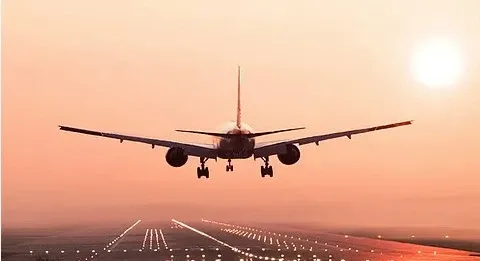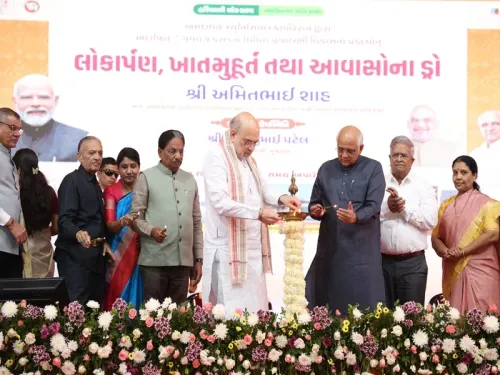Has the Centre Approved the Reopening of 32 Airports Amid Easing Tensions at the India-Pakistan Border?

Synopsis
Key Takeaways
- The Centre has reopened 32 airports following the easing of tensions.
- Airports will reopen gradually, reflecting security considerations.
- Passengers should expect changes in flight schedules and security protocols.
- The move is a vital step towards restoring normalcy in air travel.
- Security measures remain heightened as the situation evolves.
New Delhi, May 12 (NationPress) On Monday, the Centre released a NOTAM (Notice to Airmen) announcing the gradual reopening of 32 airports that had been closed since May 9 due to cross-border drone and missile strikes. These actions were prompted by heightened tensions between India and Pakistan following the tragic massacre of 26 tourists in Pahalgam by terrorists linked to Islamabad.
The airports set to resume operations include Chandigarh, Srinagar, Amritsar, Ludhiana, Bhuntar, Kishangarh, Patiala, Shimla, Kangra-Gaggal, Bathinda, Jaisalmer, Jodhpur, Bikaner, Halwara, Pathankot, Jammu, Leh, Mundra, Jamnagar, Hirasar, Porbandar, Keshod, Kandla, and Bhuj.
Although a ceasefire was announced at the request of Pakistan's DGMO (Director General of Military Operations), the government is proceeding cautiously. The night was reported to have been peaceful across Jammu and Kashmir and along the International Border, with no incidents occurring, marking a significant improvement.
The reopening of these strategically important airports signifies a reduction in cross-border conflicts and follows India's successful 'Operation Sindoor', executed in response to the Pahalgam tragedy.
Furthermore, the reopening is expected to facilitate a return to normal flight operations that have faced significant disruptions due to the ongoing conflict.
The Delhi International Airport Limited (DIAL) reported that operations at the airport are currently running smoothly. However, travelers should be aware that changing airspace conditions and increased security protocols may impact flight schedules and processing times at security checkpoints.
Passengers are urged to stay updated with their airlines and allocate additional time for necessary security checks, while also following hand baggage and check-in regulations.
With the ceasefire agreement in place as of Saturday, the government remains vigilant regarding security concerns.
On Sunday, Prime Minister Narendra Modi convened a meeting with the three service chiefs and the Chief of Defence Staff to review the current situation.










